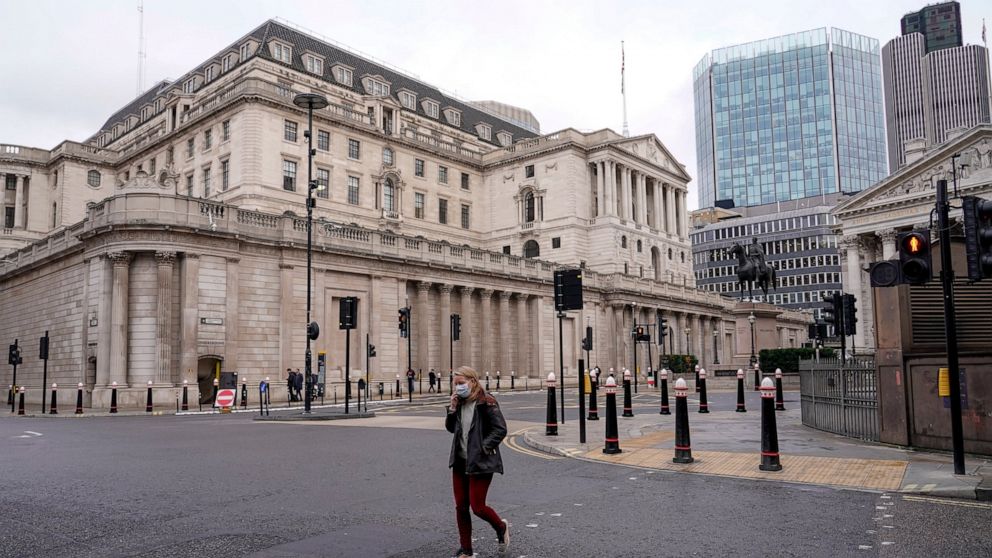
Inflation vs. omicron: Bank of England faces rate dilemma
ABC News
The Bank of England faces a difficult dilemma over whether to increase interest rates
LONDON -- With prices rising at the fastest pace in a decade in the run-up to Christmas, households up and down the United Kingdom could do without an increase in their loans and mortgages if the Bank of England decides to raise interest rates Thursday.
Most economists and financial markets think it's more likely than not that the central bank will keep rates unchanged given the huge economic uncertainties surrounding the spread of the omicron variant of the coronavirus. Were it to raise rates, it would be the first central bank within the world’s leading economies to do so since the pandemic began.
With omicron infections in the U.K. tipped to rise exponentially in the coming days, rate-setters are expected to keep the bank’s main interest rate unchanged at the record-low 0.1%, instead of raising it to 0.25%.
The European Central Bank, which sets interest rates for the 19 countries that use the euro currency, also is expected to sound a note of caution when it announces its latest decision soon after the Bank of England. However, the U.S. Federal Reserve decided to speed up its tightening of credit Wednesday as inflation reached a 40-year high in November.
